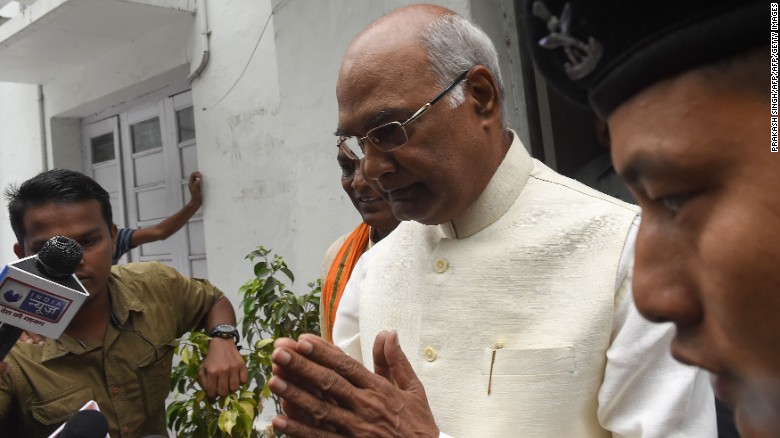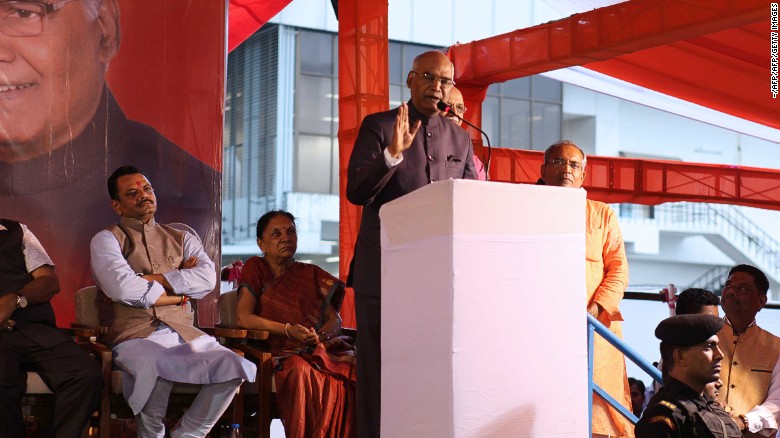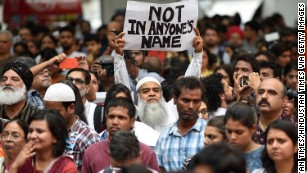
New Delhi (CNN)A relatively unknown political operator and member of India's lowest Dalit caste has been elected as the country's 14th president.

New Delhi (CNN)A relatively unknown political operator and member of India's lowest Dalit caste has been elected as the country's 14th president.


CNN's Anish Gawande contributed reporting.
Replies sorted oldest to newest
Congratulations to all Dalits on GNI, especially Churchill and the Myth.![]()
"Dalits rising", yuh read dat Caribj. That shows dem Guynaese Dalits come from very very good stock.
Narenda Modi is a great PM for India in this present time. China is very much afraid of India's military capabilities and it's economy power. The Dalits will finally get better representatives and opportunities. I hope one day in my lifetime, Dalits will become equal citizens of one class in India.
Billy Ram Balgobin posted:Congratulations to all Dalits on GNI, especially Churchill and the Myth.
D2 will have a heart attack if and when he reads this article. Dalit Power.
Prashad is proud that the lowest caste was elected.
Prashad posted:Prashad is proud that the lowest caste was elected.
What about the Dalits in Guyana?
The people considered as Dalits in India, do they go about their daily routine thinking they belong to the untouchable class? Or, are they kept in their place by the upper castes, and how does an upper caste identifies a Dalit?
Even though this class separation has been going on in India and other countries for generations, its a shitty way for one people to look upon another. This was also experienced in Guyana, with Indian nationals.
At a Canadian development organization meeting in Montreal. A speaker from Sierra Leon said, if we are partners in development, why are we a THIRD country and you a FIRST.
This prompted the Canadian organization to call countries in the south GLOBAL SOUTH and northern countries, GLOBAL NORTH.
That is the problem I have with Hinduism. To condemn a fellow follower of the religion to untouchable status by another member of that religion is the worst form of traitorship.
I am also waiting for India to have its first Muslim Prime Minister. If Muslims of India can become heads of their Intelligence organizations then certainly an Indian Muslim should be allowed to become Prime Minister of India.
i am very glad the new indian president is my namesake. he is dalit and i am chamar. caste prejudice must end once and for all. sooner or later.
I just read that Ram Nath Kovind said that Islam and Christianity are alien concepts in India. He had argued against Christian and Muslim Dalits getting special status with Hindu Dalits If he really said this statement then someone should remind him of his status in Hinduism.
Could it be that the Dalits crave the status, ensuring them of benefits. Perhaps, that is why he prefers to discredit muslim and christian dalits. Being in Islam is the freeing of the spirit, not unless they are discriminated.
Looks like this man just wanted benefits for Hindu dalits but muslim and Christian dalits are on their own and have to fend for themselves. Nevertheless a dalit remains a dalit regardless of religion. Societal prejudice remains. Would a prejudiced high caste pandit want to hug a dalit if the dalit said to him " Nice to meet Pandit I am now known as Mohammed Akbar" The Pandit may put three kicks in the dalit instead of the one kick that he would have had if he had remained a Hindu.
Access to this requires a premium membership.